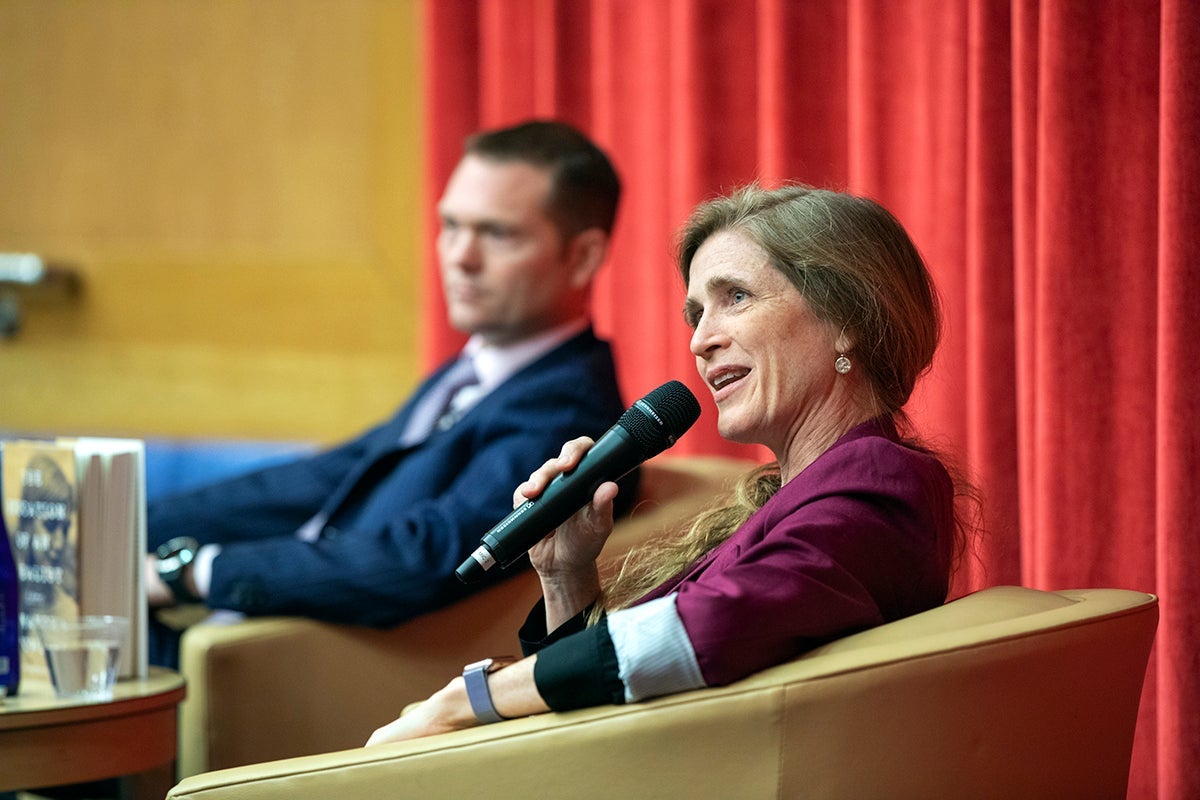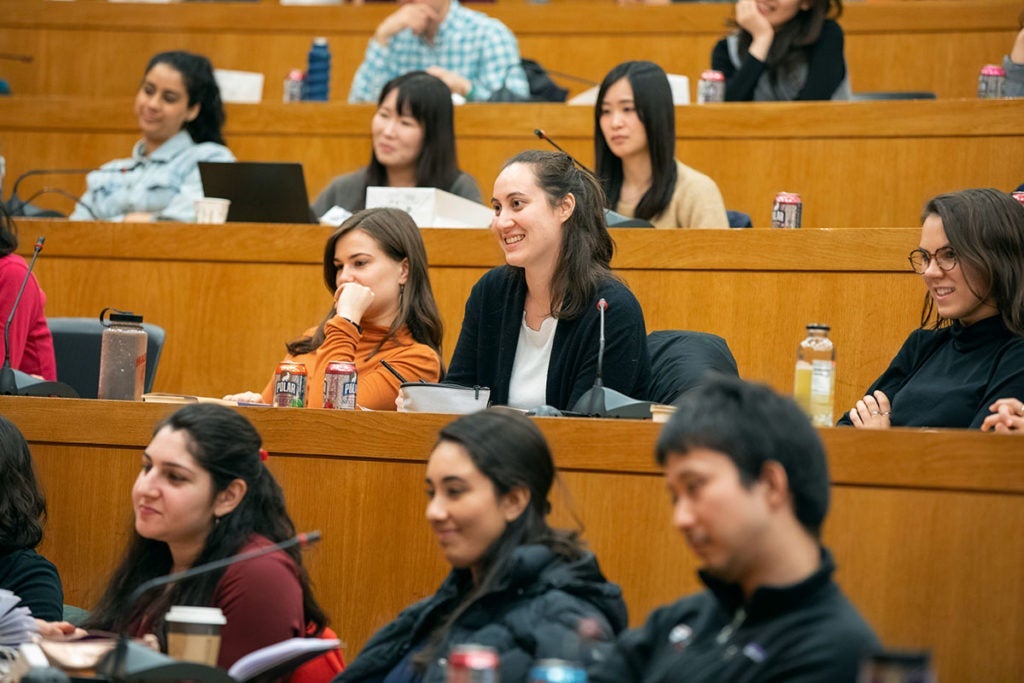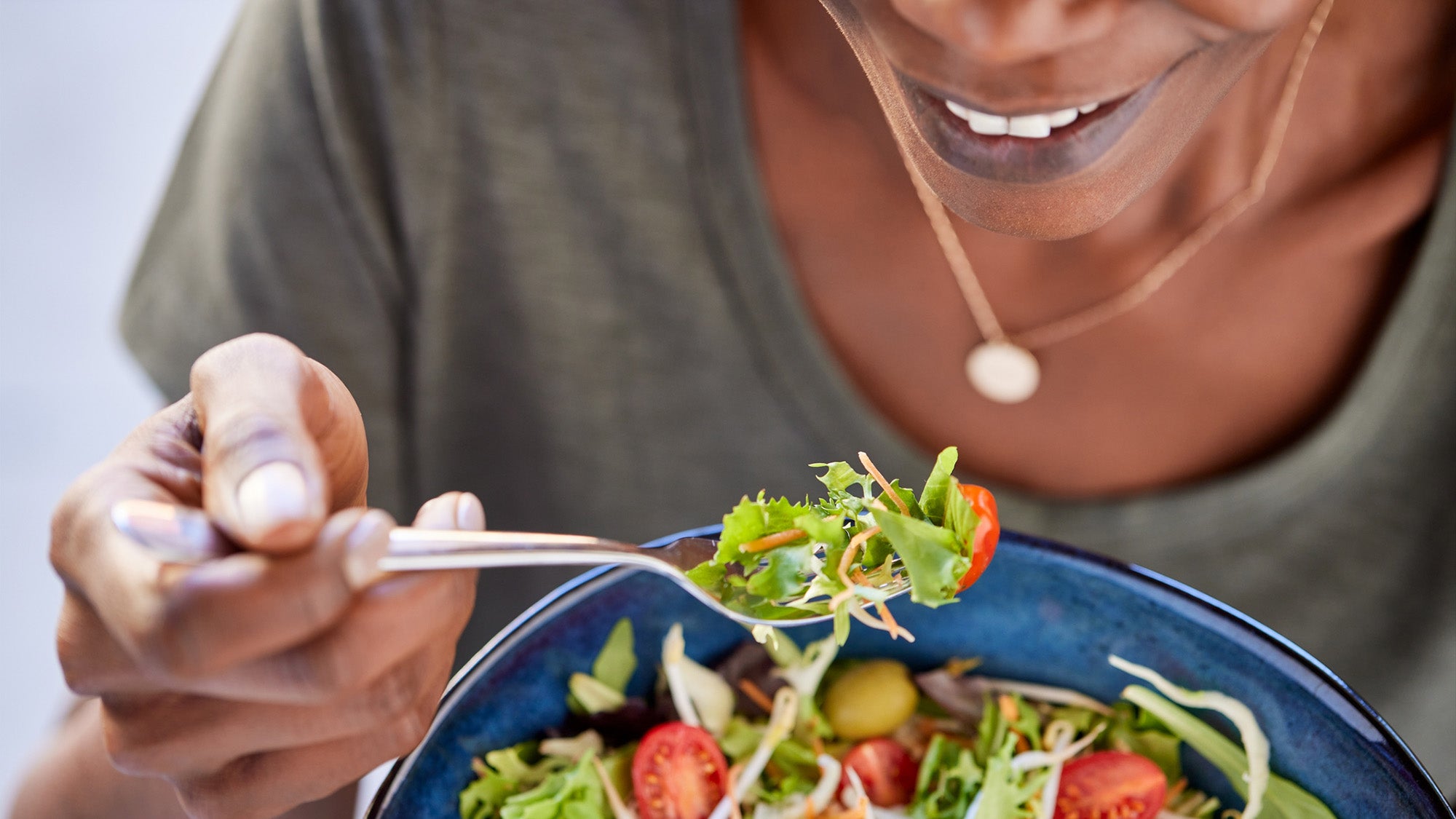Former UN ambassador Samantha Power shares personal experiences, professional perspective

February 27, 2020 – Samantha Power never imagined she would write a memoir.
But Power, who served as United Nations ambassador under President Obama, told a Harvard T.H. Chan School of Public Health audience on February 25, 2020 that she thought it was important to share her experiences—about being an immigrant from Ireland, her career, dealing with anxiety, romance, even baseball—and of what it was like trying to achieve major goals despite sometimes questioning her ability to do so.
Speaking before a standing-room-only crowd in Kresge G1, Power said that she wished that more people—public officials, doctors, lawyers, or others—would open up more about what it’s like to try to improve the state of the world, because the process “is very shrouded from the outside. And that means you end up making all the mistakes the first time yourself. What I hope to do is spare people some of the many mistakes that I’ve made along the way.”
The event was sponsored by Harvard Chan School’s Takemi Program in International Health, the FXB Center for Health and Human Rights at Harvard University, the Carr Center for Human Rights Policy at Harvard Kennedy School (HKS), and the Harvard Humanitarian Initiative. Jesse Bump, lecturer on global health policy at Harvard Chan School and executive director of the Takemi Program, moderated.
Power—the Anna Lindh Professor of the Practice of Global Leadership and Public Policy at HKS and William D. Zabel ’61 Professor of Practice in Human Rights at Harvard Law School—spoke about topics including the UN, the U.S. role in the world, fake news, the importance of hope, and balancing one’s personal and professional life. Following the event, she signed copies of her book, “The Education of an Idealist: A Memoir.”
She called the UN Security Council “dysfunctional,” gripped by gridlock. She said that China has become more assertive on issues related to Taiwan, Myanmar, and North Korea, while Russia impedes any progress on the crisis in Syria. And the U.S. is “AWOL on some of the major issues of our time” related to peace and security, public health, human rights, and humanitarian issues, she said. Power cited refugee resettlement as an example. “When the U.S. slams its doors, it isn’t as though the U.S. isn’t leading,” she said. “We’re leading in a way that gives others a kind of permission slip to take similar measures within their own domains.”
Regarding fake news, she said that “we don’t have many umpires these days in terms of facts.” She noted that 40% to 60% of Americans get most of their news from Fox News, “and Fox News so often distorts what is happening and doesn’t issue corrections for any mistakes, to my knowledge.” As for President Trump, she said, “With every lie he tells, there’s the lie itself and then there’s the weakening of the idea that truth is a foundation.” But she added, “There’s no giving up… The real question is, just how do you mitigate the damage?”
Power acknowledged that the current state of the world makes many people “just feel very small,” powerless to change things. But she added, “We have to get past that. It’s only by getting beyond the lament that we put one foot in front of the other and begin to gather forces that are still very much opposed to the direction that things have gone of late.”

Power told a humorous story that illustrated how it was often impossible for her to separate her professional and personal worlds. One night in June 2013, Power and her husband Cass Sunstein, Robert Walmsley University Professor at Harvard, had been invited to dinner with the Obamas, along with some others. Power enlisted her stepfather Eddie to care for their then-one-year-old daughter. As dinner was about to start, he called because he was having trouble feeding the baby. It turns out he’d put rice water in the bottle by mistake.
As Power was trying to counsel her stepfather, with the baby crying in the background, President Obama asked Power for the phone. To her stepfather, he said, “Eddie, this is the president. You got this.” And he talked him through the feeding for the next three minutes.
Later that evening, President Obama told Power that he wanted her to serve as UN ambassador. “I was still thinking about the food,” she admitted.
“The mingling of it all—that’s what it looks like,” Power said. Even though popular culture portrays people’s professional lives and personal lives as separate, “they’re not separate,” Power said. “Everything’s overlapping with everything else.”
photos: Lisa Abitbol


